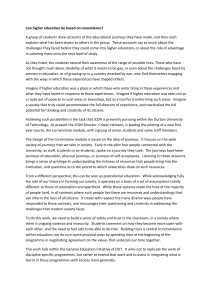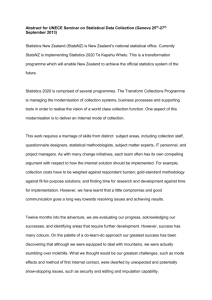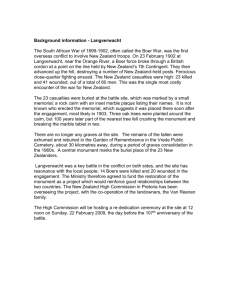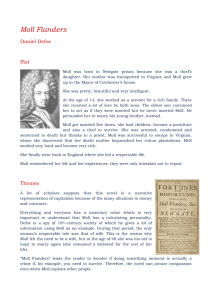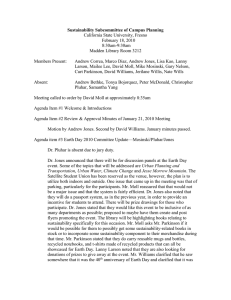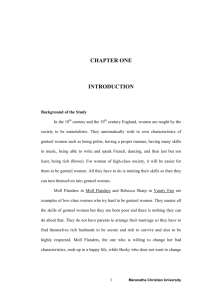introductions_conclusions_07_07
advertisement
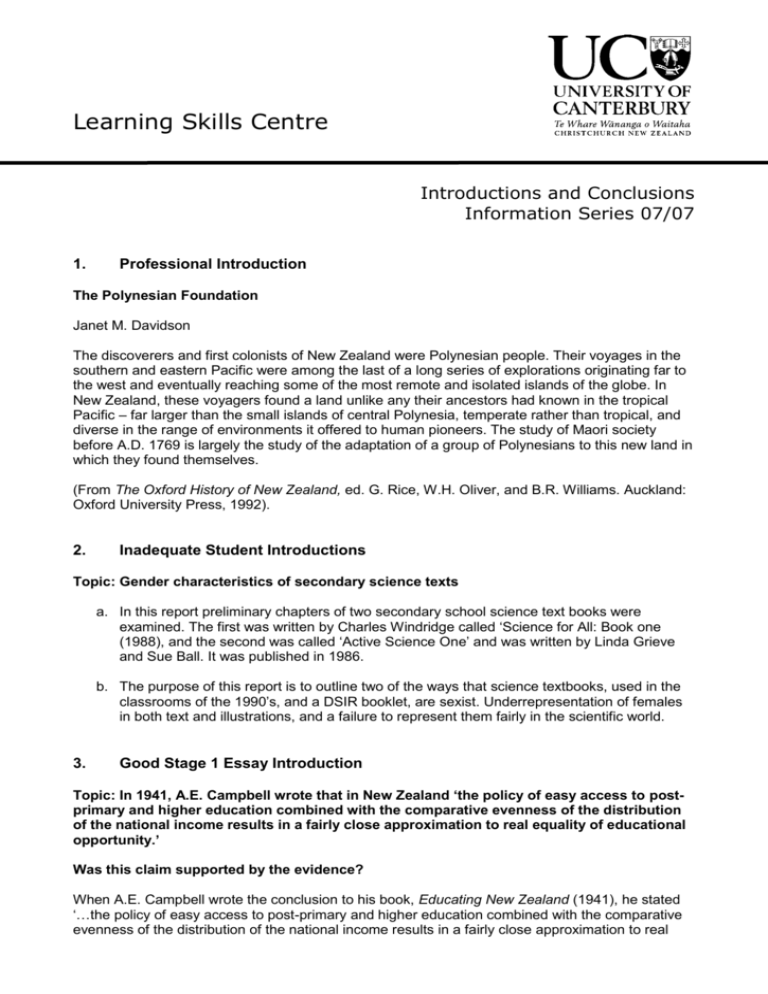
Learning Skills Centre Introductions and Conclusions Information Series 07/07 1. Professional Introduction The Polynesian Foundation Janet M. Davidson The discoverers and first colonists of New Zealand were Polynesian people. Their voyages in the southern and eastern Pacific were among the last of a long series of explorations originating far to the west and eventually reaching some of the most remote and isolated islands of the globe. In New Zealand, these voyagers found a land unlike any their ancestors had known in the tropical Pacific – far larger than the small islands of central Polynesia, temperate rather than tropical, and diverse in the range of environments it offered to human pioneers. The study of Maori society before A.D. 1769 is largely the study of the adaptation of a group of Polynesians to this new land in which they found themselves. (From The Oxford History of New Zealand, ed. G. Rice, W.H. Oliver, and B.R. Williams. Auckland: Oxford University Press, 1992). 2. Inadequate Student Introductions Topic: Gender characteristics of secondary science texts a. In this report preliminary chapters of two secondary school science text books were examined. The first was written by Charles Windridge called ‘Science for All: Book one (1988), and the second was called ‘Active Science One’ and was written by Linda Grieve and Sue Ball. It was published in 1986. b. The purpose of this report is to outline two of the ways that science textbooks, used in the classrooms of the 1990’s, and a DSIR booklet, are sexist. Underrepresentation of females in both text and illustrations, and a failure to represent them fairly in the scientific world. 3. Good Stage 1 Essay Introduction Topic: In 1941, A.E. Campbell wrote that in New Zealand ‘the policy of easy access to postprimary and higher education combined with the comparative evenness of the distribution of the national income results in a fairly close approximation to real equality of educational opportunity.’ Was this claim supported by the evidence? When A.E. Campbell wrote the conclusion to his book, Educating New Zealand (1941), he stated ‘…the policy of easy access to post-primary and higher education combined with the comparative evenness of the distribution of the national income results in a fairly close approximation to real equality of educational opportunity’ (p.182). His claim would appear to be based on the major reforms that had occurred in the New Zealand educational system between 1920 and 1941. There is evidence to show, however, that when A.E. Campbell wrote his book there was not equality of educational opportunity for all, and that a person’s race, social class, gender and geographical location were the major factors in determining what educational opportunity was available to them. 4. Comparison of Essay Introduction and Conclusion Topic: Discuss the significance of journeys in two novels. a. Introduction A journey suggests the leaving of one place in order to arrive at another. It may be undertaken of one’s free will or be the consequence of events beyond one’s control. Whatever form a journey takes it becomes part of the life experience of the traveller. The life journeys which Christian in Pilgrim’s Progress and Moll in Moll Flanders undertake are the result of strong motivating forces. Christian seeks spiritual understanding and growth leading to salvation as he follows the path of his Puritan beliefs, while Moll seeks physical and economic survival along whichever path opportunity presents, delaying repentance until her financial circumstances allow that luxury. In spite of these contrary aspirations there are many similarities as well as differences to be seen in the life journeys of the two protagonists. b. Conclusion The life journeys of both Christian and Moll are characterised by the need to overcome challenges to their resolve. They both live in a worldly environment with its many temptations even it they are portrayed very differently in each novel. The differences in the journeys are the result of the way in which they deal with these temptations. Christian rejects the world to achieve his goal; Moll uses it to achieve hers.


